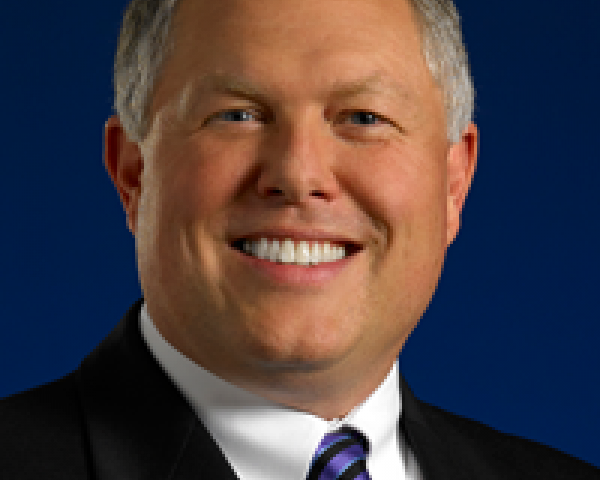- Marguerite Tortorello – moderator
- Terrance Cavanaugh – president and CEO – Erie Insurance Group
- Kenneth Ciak – vice chairman – Ameriprise Auto & Home Insurance
- Tad Montross – retired CEO – Gen Re
- J. Douglas Robinson – chairman – Utica National Insurance Group
- The Weather Channel!
- Making sure that we are achieving responsible growth for our shareholders.
- The emerging risk trend that had not yet been identified.
- Worrying is one step. As CEO, you need to do something about the things that cause you worry.
- The dramatic change our economy is undergoing and the impact it will have on our industry.
- As CEO, everything keeps you awake.
- Our industry used to be very sleepy and stagnant. Over time, we are seeing more specialization, which allows for better expertise. We need to continue to attract better and smarter new talent into our industry. Our industry needs to do a better job explaining the role insurance has in the economy and all the good things we do.
- The question is – how much of the change we are seeing right now is cyclical versus permanent? How companies respond to this is important to their future direction. Companies are more intelligent now because of underwriting and claims models. We need to be cautious about becoming overly dependent on these models.
- Is your business culture an accelerator or an inhibitor to future business. Going forward, we need to focus more on service instead of just the protection that we offer. Our clients expect us to be more proactive.
- There is more emphasis on “work-life” balance, but this may have gone too far. New employees want to work less but be rewarded more. Our clients expect 24-7 service, which conflicts with our employees' desire for less time at work.
- You want people who are curious and will challenge the status quo. We cannot be overly dependent on what we have done in the past to make decisions about the future.
- Leadership needs to have a clear vision about their long-term goals and not get distracted by short-term issues.
- Leaders need to show their employees they care about them and that we relate to them. Our customers want the same thing.
- We need to emphasize the vast variety of tasks we perform and jobs available in our industry.
- Stressing the “service” aspect of our industry versus just paying claims. We help people at a time of need.
- We are an industry that is under attack at the state and federal levels. We need to do a much better job talking about the good things we do for society and the key role our industry plays in preserving the economy.
- Everyone uses insurance products, but few actually understand the insurance products. The industry needs to do a better job explaining what we do and why it is so important. We need people to view insurance as an investment in protection instead of just an expense.
- Consumers want instantaneous service, and we need to be able to deliver it.
- We still deliver paper policies, so we have a long way to go in the technology area.
- It is important to balance technology changes with regulatory requirements.
- Technology is affecting almost every risk we underwrite. Industry leadership needs to pay attention to these changes so they make sure they are evaluating the risk correctly.
- We probably have made more mistakes with technology innovation than other industries due to the significant amount of historical data we are dependent on. On the flip side, we may become better at evaluating risk than public policy wants us to be as certain segments may become uninsurable with better data and analysis.
- This is a huge issue. Not only are regulators wanting to regulate how we do the business of insurance, but they are also wanting to regulate what we invest in, who we promote, how we compensate people and the makeup of our boards. At some point, we have to run a business.
- The constant change of regulations creates so many challenges. For example, after Hurricane Sandy states, put out new regulations to govern how companies handled claims on in-force policies.
- Historically, the party in the White House has not had a significant impact on the financial markets.
- We are already seeing so much regulation on our industry, it is hard to get much worse.
- There is concern that politicians will not like the answers that our data gives us with regard to rates and coverage limitations.
- The sharing economy is going to have a big impact on our industry. The state elections and how they are viewing this could have a significant impact.
- The concern is that one party may control the presidency, House and Senate, which would not be best for consumers or our industry as it would allow that party to unilaterally advance their agenda.
- We have seen significant consolidation on the brokerage side, and this will continue.
- We are likely to see more direct-to-consumer products, which is what consumers are requesting.
- There needs to be a way to allow consumers to have flexibility and still involve the agent or broker in the transaction.
- I wish we had made bigger investments in technology earlier rather than constantly trying to modify legacy systems.
- Be mindful of your body language and demeanor as people pay close attention to this when listening to your message.
- It is so important to have the right people in the right place. Intellectual capital still drives everything.
- Don’t be afraid to make decisions. Too many let indecision inhibit them.
- My greatest fear was that I would hire the wrong people for the job. We eventually developed better tools to assist in that, and I wish they had been available earlier.






